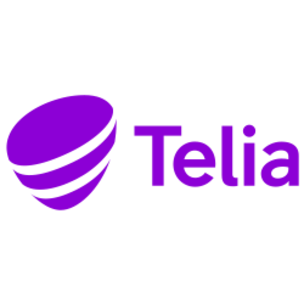Telia CrowdInsights
- Transportation
- Telecommunication
Access is restricted to Aalto faculty and students. You will need to send a research plan to datahub@aalto.fi to gain access.

Data source type
License
Analysis unit
Geographical coverage
Time period coverage
Frequency
Format
Encoding
Description
Telia CrowdInsights data is collected from mobile phones which have a Telia subscription, and extrapolated according to Telia's market share to represent the whole population. The data includes three parts: activity reports (where groups of people are dwelling and when, and where they go after), trip reports (origin-destination matrix: where people come from, go to and how), people flow (when and where crowds are moving based on routing by road, rail, ferry or plane)
Activity data
Activity data reports the number of people dwelling in a specific location for a certain amount of time. More precisely, activity count calculates the number of unique persons with an activity per spatial and temporal unit. For example, in the hourly data a person will usually have two activities at home - one in the morning and one in the evening - but in the daily data this will show as one activity. An activity is identified if a person is dwelling at least 20 minutes in the same area.
Activities can be classified into three categories: home, work and other. The home zone is based on the longest activity before 09:00 for each person, while work location is defined as the location of longest activity of the day starting after leaving the home zone. Other activity is any activity happening outside the identified home or work locations.
Trip report
Trip report gives information on where people come from (origin), go to (destination), and how they have moved from the origin to the destination. This is reported as an origin-destination matrix (ODM). This data can be used, e.g., for determining transportation need in an area and traffic volumes.
People flow report
People flow report shows where and when crowds are moving. Trip reports are used to determine the most likely routes taken on a trip, possible routes being road, rail, air and ferry routes. Routing is determined by assuming the fastest route between locations, taking into account map matching between route options and radio cell coverage areas. Shows for example the amount of people travelling using a certain type of transportation in a certain area, or passing a certain location.
Distributor
Acknowledgement
We acknowledge the following people in taking part in the purchase of the full data from 2021 onwards:
• Assistant Professor Henrikki Tenkanen, Department of Geoinformatics
• Professor Jari Saramäki, Department of Computer Science
• Assistant Professor Pablo Warnes, Department of Economics
• Assistant Professor Prottoy Akbar, Department of Economics
Cite as
Telia Company, 2024, Crowd Insights, https://business.teliacompany.com/crowd-insights
Contact
Send your research plan to datahub@aalto.fi to gain access.
Supporting materials
Disclaimer
Due to privacy, individual movements never show on the data: dwelling / trips with less than 5 people in a certain postal code area at a time are removed from the dataset. This data is updated quarterly until April 2025, with the next update scheduled to happen in August 2024.